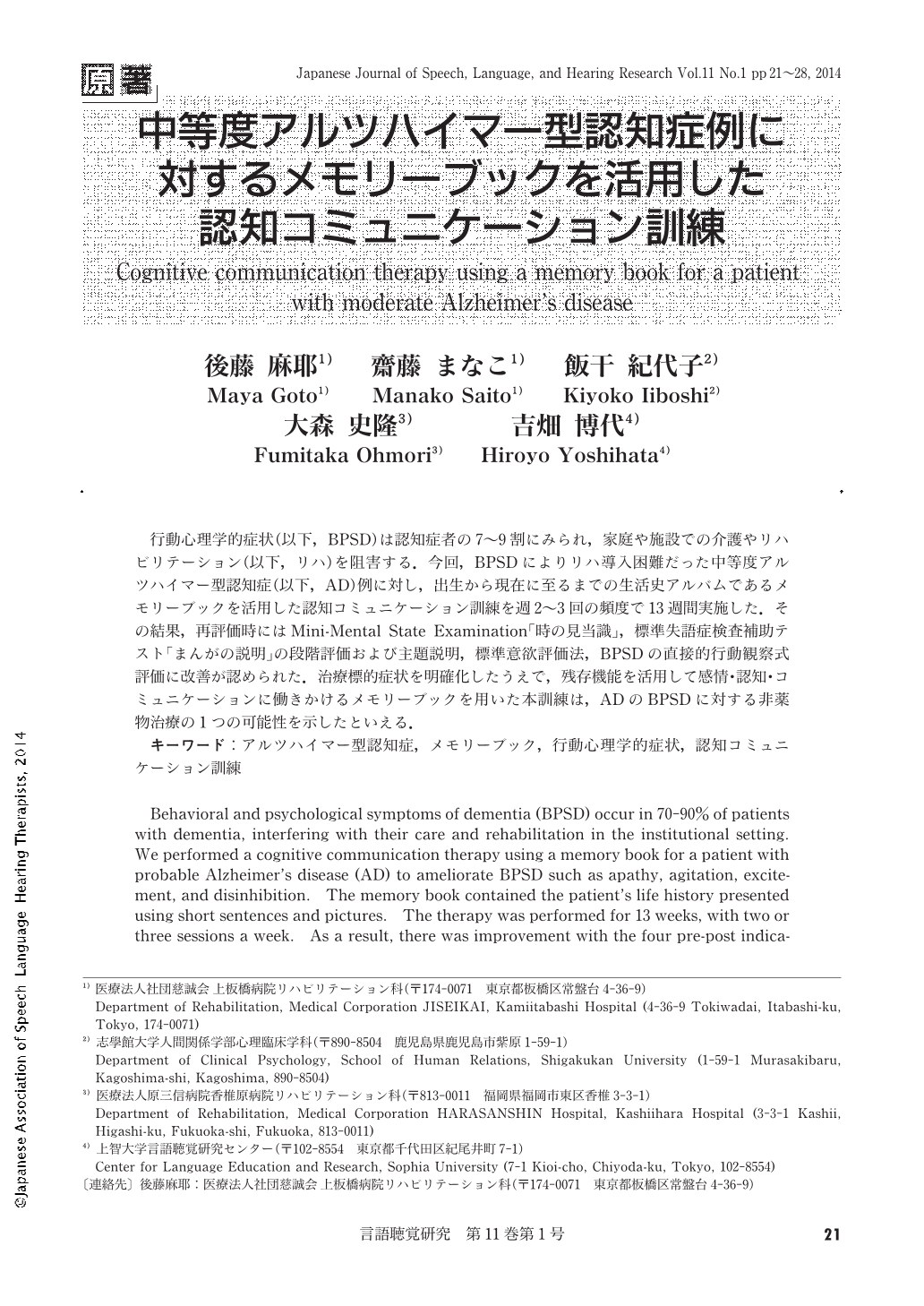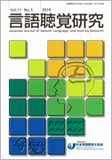Japanese
English
- 有料閲覧
- Abstract 文献概要
- 1ページ目 Look Inside
- 参考文献 Reference
- サイト内被引用 Cited by
行動心理学的症状(以下,BPSD)は認知症者の7~9割にみられ,家庭や施設での介護やリハビリテーション(以下,リハ)を阻害する.今回,BPSDによりリハ導入困難だった中等度アルツハイマー型認知症(以下,AD)例に対し,出生から現在に至るまでの生活史アルバムであるメモリーブックを活用した認知コミュニケーション訓練を週2~3回の頻度で13週間実施した.その結果,再評価時にはMini-Mental State Examination「時の見当識」,標準失語症検査補助テスト「まんがの説明」の段階評価および主題説明,標準意欲評価法,BPSDの直接的行動観察式評価に改善が認められた.治療標的症状を明確化したうえで,残存機能を活用して感情・認知・コミュニケーションに働きかけるメモリーブックを用いた本訓練は,ADのBPSDに対する非薬物治療の1つの可能性を示したといえる.
Behavioral and psychological symptoms of dementia (BPSD) occur in 70-90% of patients with dementia, interfering with their care and rehabilitation in the institutional setting. We performed a cognitive communication therapy using a memory book for a patient with probable Alzheimer's disease (AD) to ameliorate BPSD such as apathy, agitation, excitement, and disinhibition. The memory book contained the patient's life history presented using short sentences and pictures. The therapy was performed for 13 weeks, with two or three sessions a week. As a result, there was improvement with the four pre-post indicators:1) time orientation in the Mini-Mental State Examination, 2) description of comic strips in the Supplementary tests for Standard Language Test of Aphasia, 3) the total score of Clinical Assessment for Spontaneity, and 4) the BPSD assessment scale. These findings indicate that cognitive communication therapy using a memory book can be one of the effective methods for improving the orientation, language function, and emotional state of AD patients with BPSD.

Copyright © 2014, Japanese Association of Speech-Language-Hearing Therapists. All rights reserved.


